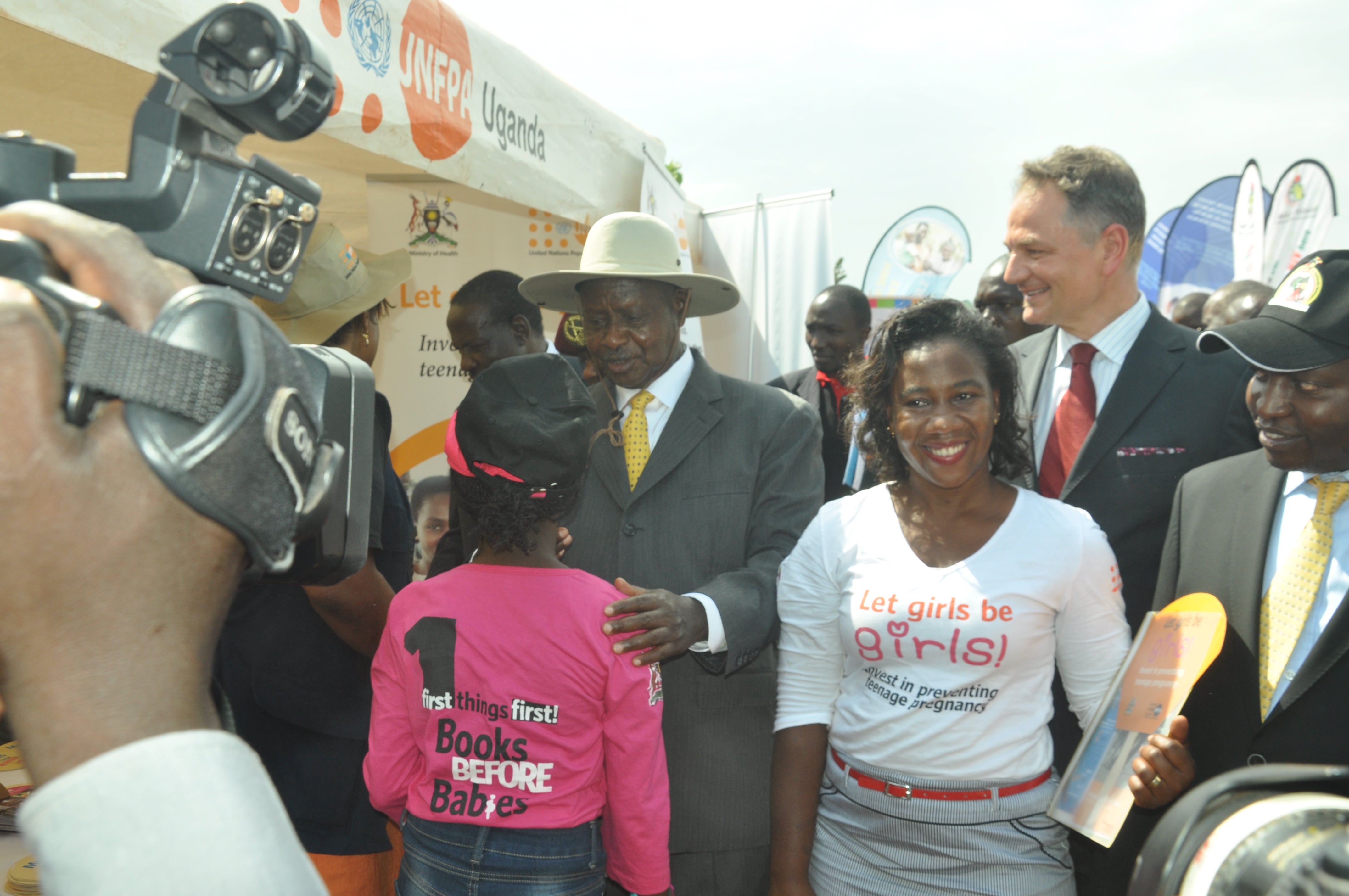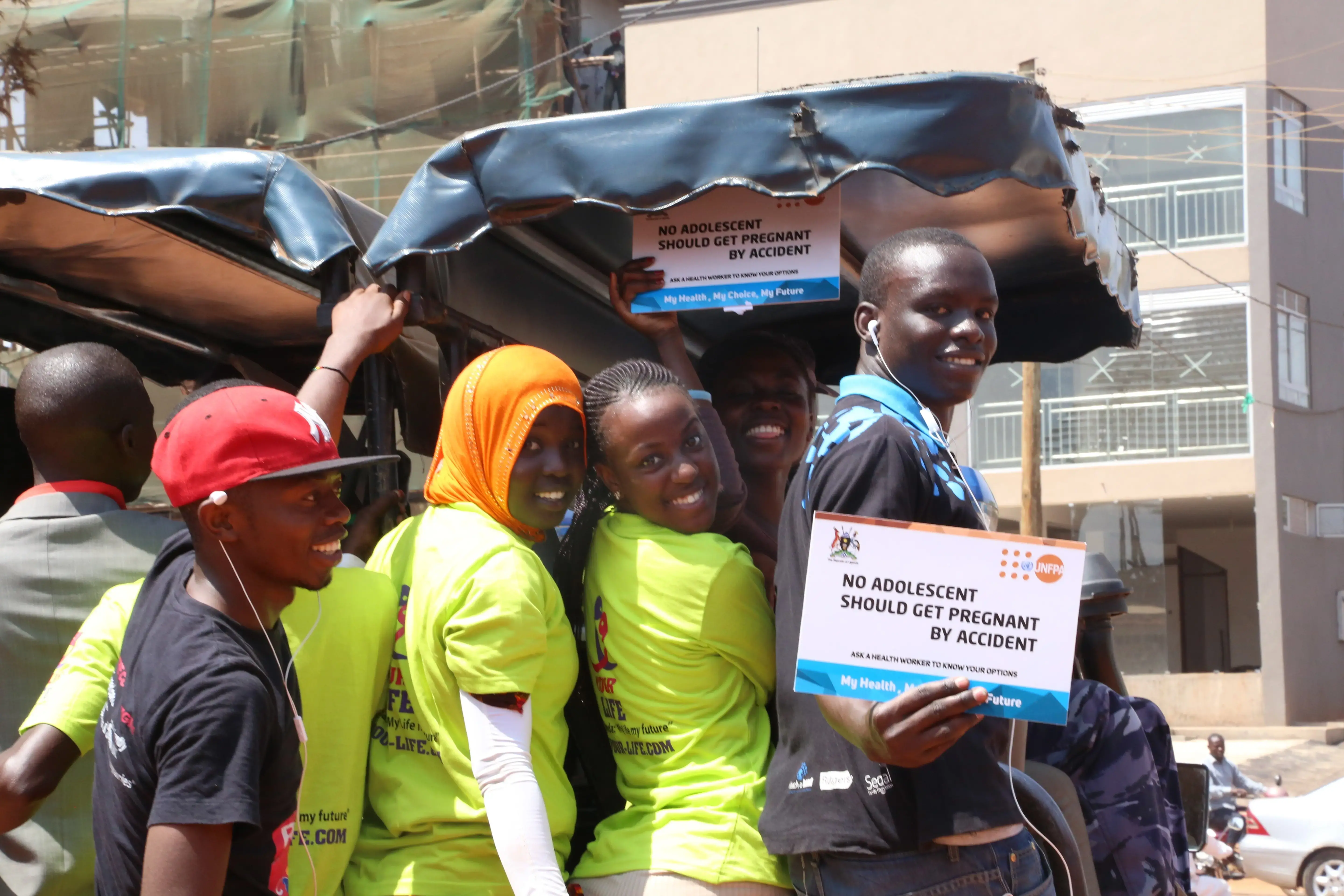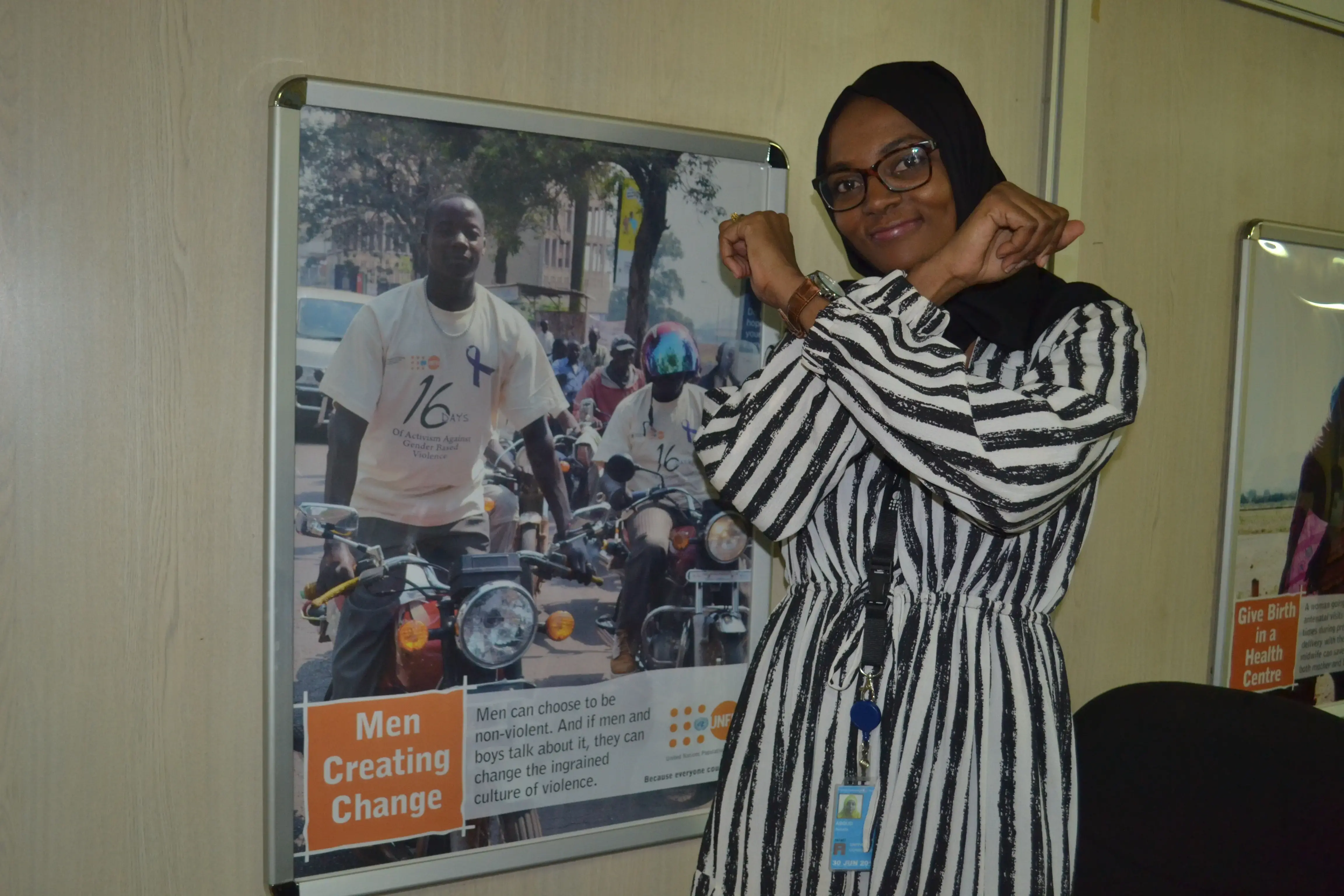The COVID-19 pandemic has impacted all aspects of life in Uganda, resulting in school closures, loss of jobs, and disruptions in access to health and social services. But no group has felt the effects of the pandemic more than adolescent girls! When the country went into lock down in 2020, fifteen year-old Sara* from Lacekor village, Adilang subcounty, Agago district, Northern Uganda, stopped going to school as schools across the country shut down. By the
time the year ended, Sara had moved in with a young man called Lokech, who used to accost her on her way to school. “He used to disturb me,” she says referring to the fact that he would make advances towards her. Sara is currently seven months pregnant.
UNFPA takes action to protect girls’ rights during the pandemic
Sara has been receiving antenatal care at Adilang health Centre. When the time comes, she will deliver at this facility, thanks to a UNFPA project that ensures that pregnant girls are mapped, given a voucher and referred to a health facility for maternity care. In addition, midwives at the health facilities have received refresher training to enable them provide emergency obstetric care to girls and women as well as information and services to prevent repeat pregnancies. Supported by the Embassy of the Netherlands, the project is implemented in 14 districts in West Nile and Northern Uganda.
“A Village Health Team member came home. She wrote my name down and told me to go to the health centre. The midwives have been caring for me and I feel happy to have someone to provide me with information and help me with my pregnancy,” Sara says. With support from the Danish Embassy, UNFPA has trained health workers to provide sexual and reproductive health information and services to adolescents in the West Nile and Northern regions. Meanwhile through the Joint Programme on child marriage, adolescent girls at risk of child marriage and teenage pregnancy are mobilised through Empowerment and Livelihood for Adolescents (ELA) clubs to receive information on sexual and reproductive health. “We cannot do business as usual, the COVID-19 pandemic has created a crisis within a crisis for adolescent girls, the country has recorded an increase in the number of girls who have become pregnant during COVID-19 lockdowns,” says Dr. Edson Muhwezi, Assistant Representative, UNFPA Uganda.

“The high rates of teenage pregnancy can be attributed to disruption to programmes that support access to sexual reproductive health information and services to schoolgirls. Additionally, poverty has led to some parents to marry off their daughters in order to make money to survive,” Dr. Muhwezi adds. Analysis of data on fi rst Antenatal Care visits from District Health Information System (DHIS-2) shows that there was a 17 percent spike in teenage pregnancies between March 2020 and June 2021.
A total of 354,736 teenage pregnancies were registered in 2020, and 196,499 in the first six months of 2021.
According to UNICEF estimates, Ugandan school children have gone more than 300 days out of school since March 2020. As a result, adolescent girls have been deprived of the social protection that school offers and have been exposed to risks of sexual violence, exploitation and abuse, child marriages, and teenage pregnancies. “We have had to adapt, innovate and collaborate even more, delivering an integrated package of sexual reproductive health and rights,” says Dr. Muhwezi. To help ensure that adolescents still have access to accurate information on sexual and reproductive health, UNFPA working with the Ministry of Education and partners, trained teachers to deliver sexuality education sessions to young people while out of school. The initiative is implemented in West Nile, Acholi, Karamoja regions and in South Western Uganda, supported by the Netherlands Embassy and the EU spotlight Initiative. In the first six months of 2021, UNFPA and partners have reached 35,337 adolescents with family planning, maternal health and HIV prevention services. In addition, 10,150 adolescent girls and young women aged 10-24 years accessed sexual and reproductive health and gender-based violence prevention services through the ELA clubs.
Long road ahead
But a lot more still needs to be done. At the ICPD25 summit in Nairobi in 2019 Uganda made a commitment to eliminate obstacles that stand in the way of girls’ empowerment including teenage pregnancy. UNFPA is supporting the Government of Uganda to deliver on this commitment. “We are mobilising stakeholders including the Ministry of Health, Ministry of Gender Labour and Social Development and Ministry of Education and Sports, to re-launch a multi-stakeholder campaign to end teenage pregnancy,” said Ms. Suzanne Mandong, the acting Representative, UNFPA Uganda. In addition, UNFPA is working with the Ministry of Education to develop policy guidance (Revised guidelines for prevention and management of teenage pregnancy in school settings in Uganda (2020) to provide a framework to support safe re-entry of girls into school after pregnancy. With COVID-19 having eroded many of the gains made in ensuring sexual and reproductive health and rights, now more than ever it is essential to prioritise the reproductive health and rights of young people, and pay special attention to adolescent girls like Sara.
*Name changed for privacy and protection
By Martha Songa





